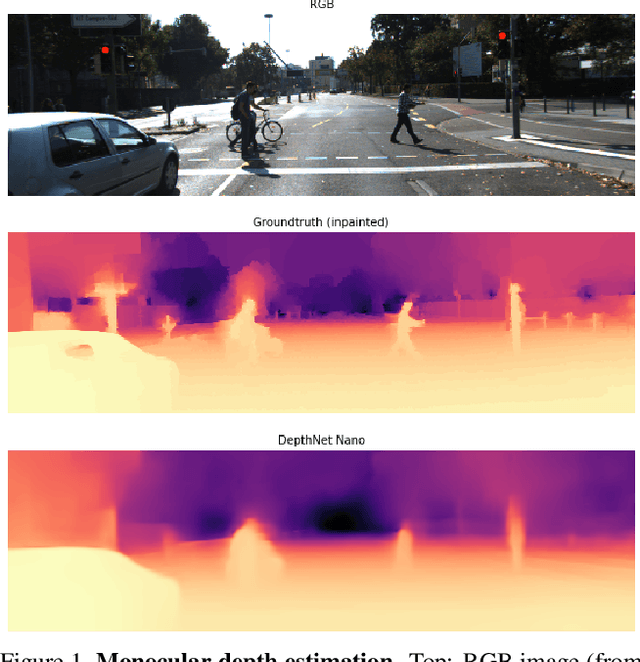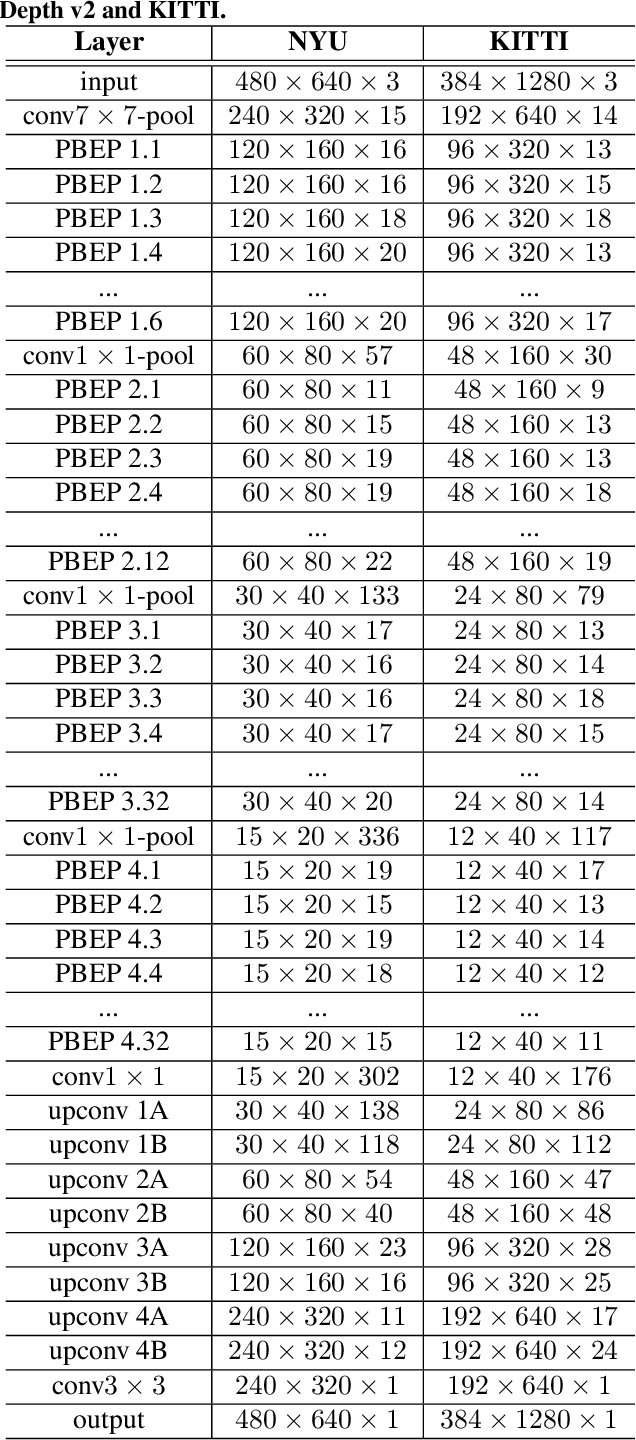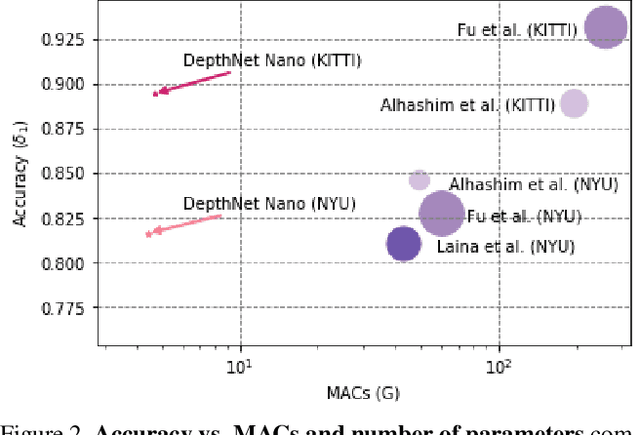DepthNet Nano: A Highly Compact Self-Normalizing Neural Network for Monocular Depth Estimation
Paper and Code
Apr 17, 2020



Depth estimation is an active area of research in the field of computer vision, and has garnered significant interest due to its rising demand in a large number of applications ranging from robotics and unmanned aerial vehicles to autonomous vehicles. A particularly challenging problem in this area is monocular depth estimation, where the goal is to infer depth from a single image. An effective strategy that has shown considerable promise in recent years for tackling this problem is the utilization of deep convolutional neural networks. Despite these successes, the memory and computational requirements of such networks have made widespread deployment in embedded scenarios very challenging. In this study, we introduce DepthNet Nano, a highly compact self normalizing network for monocular depth estimation designed using a human machine collaborative design strategy, where principled network design prototyping based on encoder-decoder design principles are coupled with machine-driven design exploration. The result is a compact deep neural network with highly customized macroarchitecture and microarchitecture designs, as well as self-normalizing characteristics, that are highly tailored for the task of embedded depth estimation. The proposed DepthNet Nano possesses a highly efficient network architecture (e.g., 24X smaller and 42X fewer MAC operations than Alhashim et al. on KITTI), while still achieving comparable performance with state-of-the-art networks on the NYU-Depth V2 and KITTI datasets. Furthermore, experiments on inference speed and energy efficiency on a Jetson AGX Xavier embedded module further illustrate the efficacy of DepthNet Nano at different resolutions and power budgets (e.g., ~14 FPS and >0.46 images/sec/watt at 384 X 1280 at a 30W power budget on KITTI).
 Add to Chrome
Add to Chrome Add to Firefox
Add to Firefox Add to Edge
Add to Edge